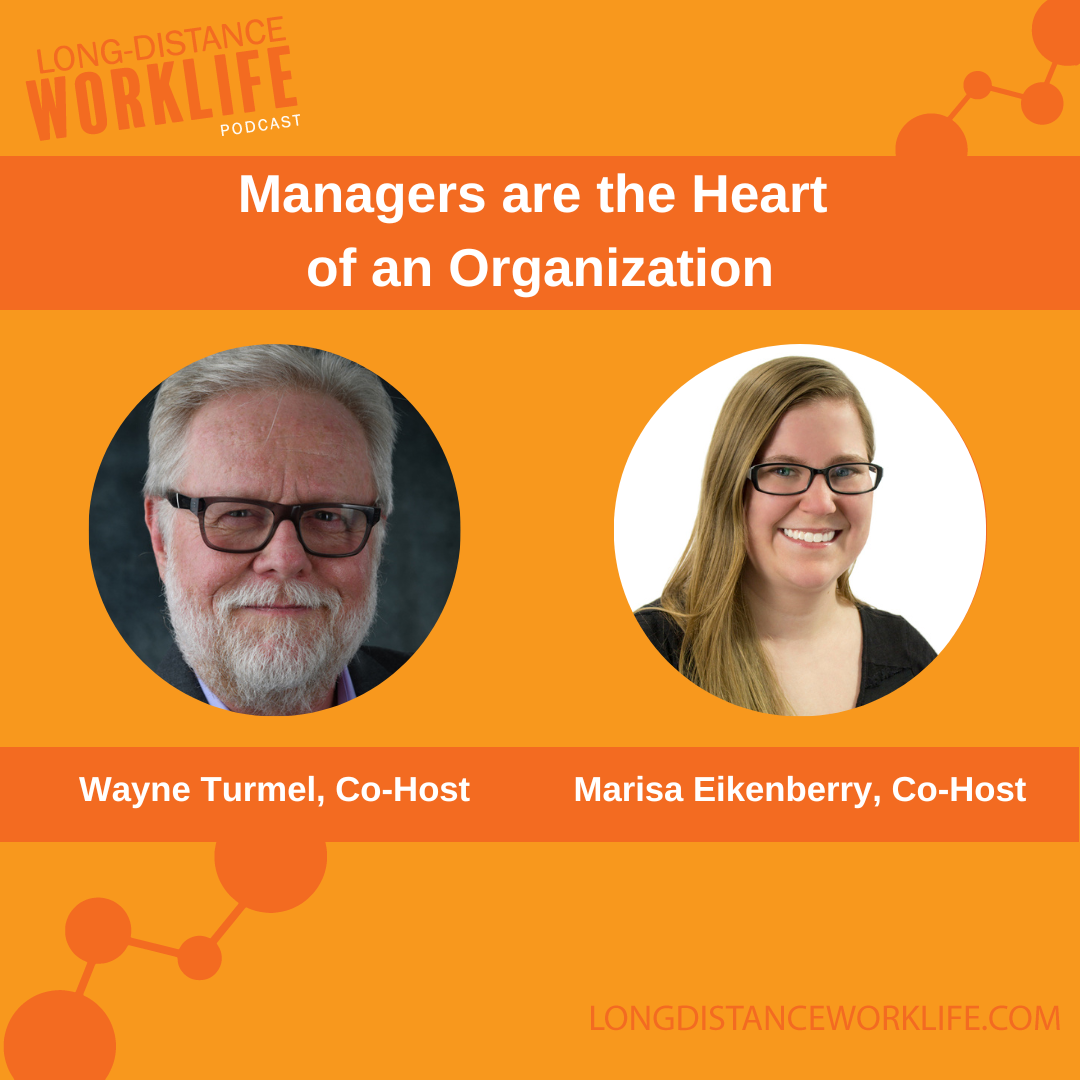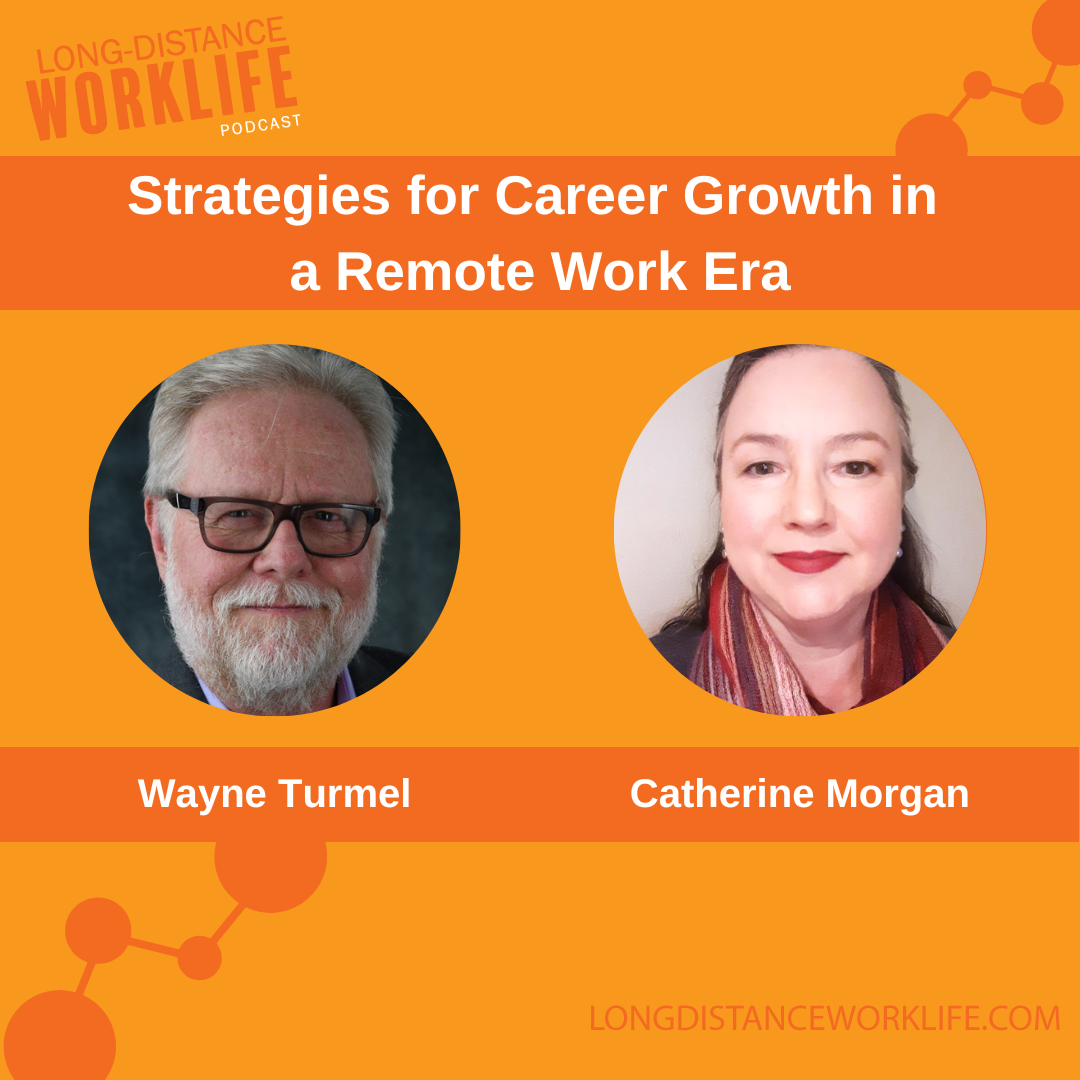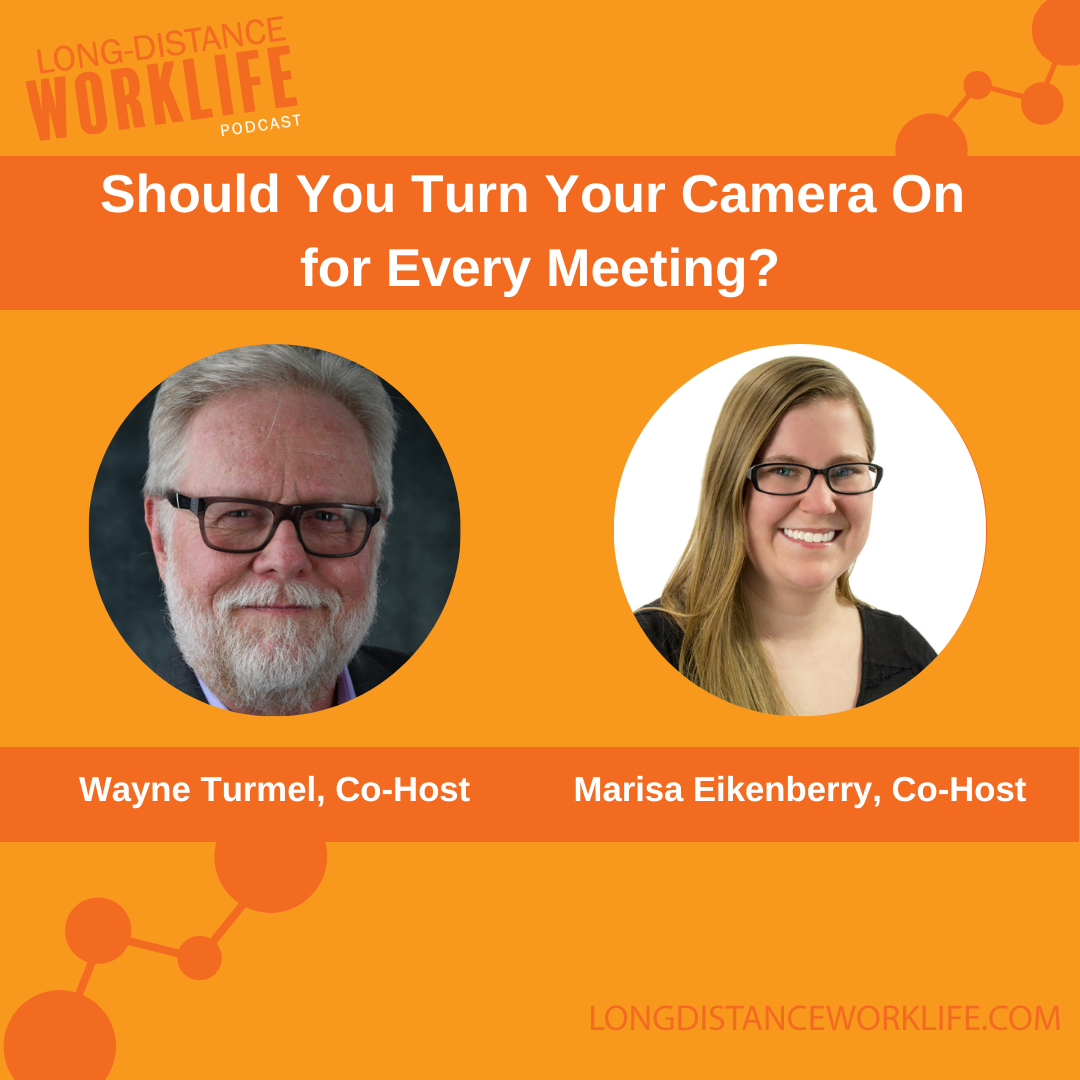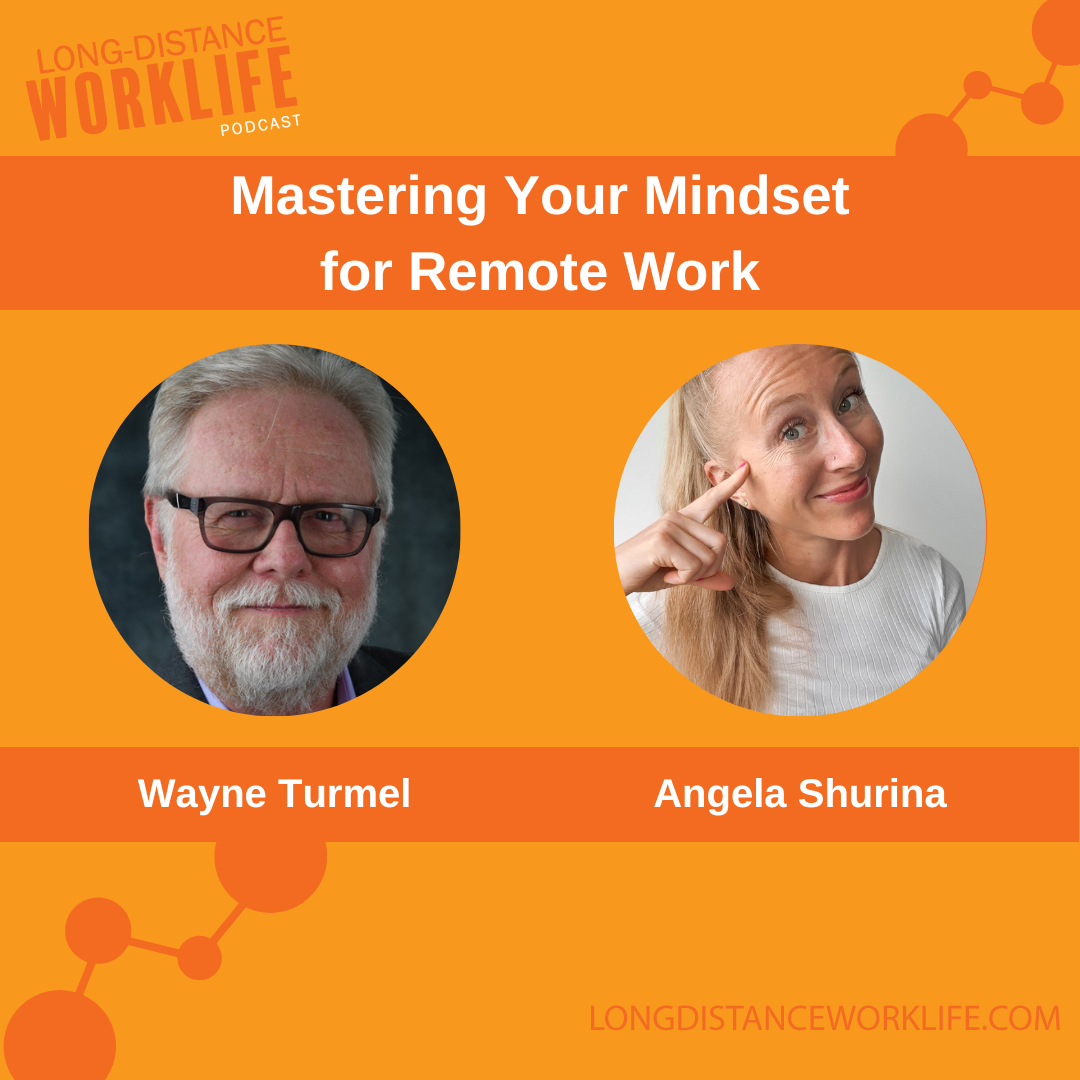Marisa Eikenberry and Wayne Turmel delve into the vital role of managers as the heart of an organization. Wayne introduces the analogy of a heart, explaining how managers serve as the crucial link between senior leadership and their teams. They discuss the flow of information, the importance of effective communication, and the challenges faced by middle managers in maintaining trust and authenticity. Wayne emphasizes the need for transparency, honesty, and gathering accurate information to fulfill the role effectively. He shares insights on navigating the delicate balance between supporting decisions and expressing personal disagreements, all while ensuring the smooth functioning of the organization. Tune in to gain valuable insights and practical tips for middle managers aiming to create a strong heartbeat within their teams and organizations.
Key Takeaways
1. Managers are the heartbeat of an organization: The analogy of a heart highlights the critical role managers play in processing and communicating information between senior leadership and their teams.
2. Gather accurate information: Managers should actively seek information from both above and below to ensure they have a comprehensive understanding of the organization and can effectively communicate it to their teams.
3. Transparency and authenticity build trust: Being honest about what you know, what you don't know, and the assumptions being made fosters trust within the team and reduces the risk of being seen as deceptive.
4. Communicate decisions with clarity: Even if managers personally disagree with certain decisions, it is their responsibility to communicate them clearly and provide the rationale behind them to maintain trust and credibility.
5. Balance between supporting decisions and expressing personal opinions: Managers must strike a delicate balance between aligning with leadership decisions and expressing their personal disagreements, all while maintaining their role as effective communicators and leaders.
6. Effective communication is essential in remote and hybrid teams: In virtual work environments, managers must be intentional about communication, actively seeking and sharing information, and leveraging transparent communication channels to ensure the smooth flow of information.
Timestamps
00:00:00 - Introduction
00:00:46 - Managers as the heartbeat of an organization.
00:02:18 - Importance of effective communication and processing information.
00:03:22 - Navigating the balance between upper management and the team.
00:05:06 - The challenge of supporting decisions one may personally disagree with.
00:06:15 - Being honest about what you don't know and avoiding making things up.
00:08:06 - Importance of transparency and authenticity in maintaining trust.
00:09:24 - Being honest about what you know and don't know to avoid damaging trust.
00:12:00 - Challenges of being a middle manager and delivering difficult news.
00:13:06 - Actionable step for middle managers: Gathering accurate information.
00:15:46 - Balancing support for decisions with personal opinions.
00:16:24 - Recap of the heartbeat analogy and the importance of managers in organizations.
Related Episodes
Additional Resources
- There's Nothing Soft About the Heart
- Do You Need a Project Team EKG?
- Learn more about Wayne Turmel
- Email Wayne Turmel
- Connect with Wayne Turmel on LinkedIn
- Learn more about Marisa Eikenberry
- Email Marisa Eikenberry
- Connect with Marisa Eikenberry on LinkedIn
- Purchase a copy of The Long-Distance Leader
- Purchase a copy of The Long-Distance Teammate
- Purchase a copy of The Long-Distance Team
- The Kevin Eikenberry Group
Order The Long-Distance Team
Remote leadership experts, Kevin Eikenberry and Wayne Turmel, help leaders navigate the new world of remote and hybrid teams to design the culture they desire for their teams and organizations in their new book!

00:00:07:21 - 00:00:18:16
Marisa Eikenberry
Welcome back to The Long-Distance Worklife where we help you lead, work and thrive on remote and hybrid teams. I'm Marisa Eikenberry, a fellow remote worker. And joining me is my co-host and remote work expert, Wayne Turmel. Hi.
00:00:18:18 - 00:00:20:09
Wayne Turmel
Hi, Marisa. How the heck are you?
00:00:20:12 - 00:00:22:04
Marisa Eikenberry
I'm great. How are you?
00:00:22:06 - 00:00:25:22
Wayne Turmel
I am well. I am well. I'm looking forward to our discussion today.
00:00:26:03 - 00:00:46:00
Marisa Eikenberry
Yeah. So today we're actually going to talk about a subject that Wayne mentioned in a previous episode about managers are the heartbeat of an organization. I'd never heard that before. And we definitely decided this is going to be a highlight. That could be its own episode. So we're going to talk about it today. So, Wayne, let's just start with what did you mean by managers are the heartbeat of an organization?
00:00:46:02 - 00:00:54:13
Wayne Turmel
Yeah, I don't mean it, although I suppose it could have some of that in an Oprah soft and mushy kind of way.
00:00:54:15 - 00:00:55:08
Marisa Eikenberry
Okay.
00:00:55:09 - 00:01:04:00
Wayne Turmel
I actually am not talking about like, a Valentine heart. I'm talking about a Grey’s Anatomy. Hold it in your hand during surgery kind of heart.
00:01:04:02 - 00:01:07:04
Marisa Eikenberry
Cristina Yang is about to operate. Yeah. Okay.
00:01:07:06 - 00:01:34:11
Wayne Turmel
So here's here's the thing. Think about what a heart does. Right. It's in your chest. And blood comes from different parts of the body, and it goes into the heart and it gets oxygenated and processed and then sent back out to the rest of the body. That's what managers do. Okay. We have information coming in from senior leadership.
00:01:34:11 - 00:01:47:01
Wayne Turmel
We have directions. We have guidance. We have marching orders. Right. And it's got to come down and we need to process that information and send it out to our teams.
00:01:47:03 - 00:01:48:06
Marisa Eikenberry
Right. That makes sense.
00:01:48:07 - 00:02:18:08
Wayne Turmel
Conversely, it comes from our team. We process it and it is our job to send it out to the senior leadership. All of this communication travels through what people sneeringly call middle managers, but it's what we do. And think about it. If one of those lines of communication, if had those arteries gets clogged.
00:02:18:10 - 00:02:21:04
Marisa Eikenberry
What happens? Yeah, you're going to have Rob.
00:02:21:06 - 00:02:45:16
Wayne Turmel
You're going to have a problem. And so I thought of this image. There are a few things that throughout my career I've kind of been, Oh, I liked that one. And this is one of them. Right. This notion of the manager as the heart and what it does, if you break that down to what we do, it means that there are responsibilities that we have.
00:02:45:17 - 00:02:59:14
Wayne Turmel
Right? One of those responsibilities is to make sure that we are oxygenating and processing right stuff just doesn't come from one part of the body shoot through the heart. Now the risk value is added.
00:02:59:16 - 00:03:00:21
Marisa Eikenberry
Or we would hope.
00:03:00:23 - 00:03:17:04
Wayne Turmel
One would hope, right? Oxygen gets added, stuff gets sent to the lungs for expulsion, all of that stuff. But it's up to us to process filter oxygen, aid the information. And that's both ways upstream and downstream, of course.
00:03:17:04 - 00:03:22:13
Marisa Eikenberry
So I guess how do you avoid feeling like you're like in a vise between upper management and your team?
00:03:22:15 - 00:03:44:23
Wayne Turmel
Well, this is the the thing, right? When we talk about middle managers, you are kind of stuck in between. And where this this manifests itself in a number of ways. One and this is particularly true on remote teams where you can't always pick up the vibe in the office.
00:03:45:01 - 00:03:46:00
Marisa Eikenberry
That makes sense.
00:03:46:02 - 00:04:22:02
Wayne Turmel
Right. Senior leadership has no clue what's going on out in the field. Right. A case like that. And so it is our job to sometimes tackle uncomfortable situations. We need to actively solicit information from the field so that we're getting good information so that we are passing accurate data about what's going on. Right. Both data and attitude. And how are they doing and don't they how are they feeling and all of that.
00:04:22:04 - 00:04:56:06
Wayne Turmel
We need to pass that on. We also very often get uncomfortable news or things that are unpleasant and we need to process that and send that out right to the field. And the thing about being a manager, if we're really honest, is that we don't always agree with or even understand some of the decisions and things that are happening.
00:04:56:10 - 00:05:06:08
Wayne Turmel
And yet it is our job to communicate, enforce, try to get people to engage with whatever the marching orders are.
00:05:06:09 - 00:05:09:23
Marisa Eikenberry
Yeah, we almost have to feel like we support it, even if we don't.
00:05:10:00 - 00:05:38:21
Wayne Turmel
And that is the single hardest thing. I mean, in my career, more than once I have known that bad news is coming and being told, Share this and you will be added to the list of people who will be gone. Gotcha. That's a very common situation that as a manager you have access to information that people don't have and you are actually not allowed to share it.
00:05:38:23 - 00:05:54:16
Wayne Turmel
So it can be hard to do that and maintain trust because you become a mouthpiece for the boss. Right? Right. So you're just a corporate weasel and you don't care about us. No, I really do.
00:05:54:18 - 00:05:57:01
Marisa Eikenberry
And this is what I have to do.
00:05:57:03 - 00:05:59:08
Wayne Turmel
And this is literally the job.
00:05:59:13 - 00:06:15:03
Marisa Eikenberry
Yeah, it's the hard part about leadership, right? The stuff that you know, and you might understand why a decision got made, because you have the data of why that decision was made. But other people don't. So they just get mad. Like I said, I mean, even small stuff.
00:06:15:05 - 00:06:20:08
Wayne Turmel
Sure. I mean, you've been in, you know, social groups and things that you might.
00:06:20:13 - 00:06:20:20
Marisa Eikenberry
Also.
00:06:20:22 - 00:06:21:05
Wayne Turmel
I mean.
00:06:21:05 - 00:06:21:19
Marisa Eikenberry
You work.
00:06:21:21 - 00:06:36:12
Wayne Turmel
You work for Kevin. There are times that he tells you everything. Boss is hard and there are times when he tells you what you think you need to know. And there are times when it's none of your darn business.
00:06:36:13 - 00:06:38:05
Marisa Eikenberry
Absolutely.
00:06:38:07 - 00:06:52:12
Wayne Turmel
Yeah. That's something that leaders have to get comfortable with in a remote or a hybrid team. Of course, it's harder because you have to work harder to get the information. You have to work harder to make sure that you're getting good information.
00:06:52:16 - 00:07:14:06
Marisa Eikenberry
Yeah, be intentional about that communication like we've talked about in previous episodes, talking about like, you know, giving out the information from upper management and stuff and, you know, maybe it's not something that you necessarily feel comfortable with or you, you know, don't disagree with You disagree with that decision. So like, how do you avoid just being a parent for the company when you disagree?
00:07:14:08 - 00:07:41:16
Wayne Turmel
This is where man trust depends so much on authenticity. And I actually have come to appreciate something that I never thought I would appreciate. At the beginning of the Gulf War, Donald Rumsfeld was secretary of state. And if you ever told me, I would agree with anything Donald Rumsfeld ever said, I would fight you. But this happens to be true.
00:07:41:18 - 00:08:06:18
Wayne Turmel
They were asking about, you know, what do we know? Is this going to happen? Is this not going to happen? And the way that he explained it is quite brilliant. He said there are no notes. There are things that we know, Right. Things that we know to be true. There are things that we think we know. There are things that we don't know and there are things we don't know that we don't know.
00:08:06:19 - 00:08:08:21
Marisa Eikenberry
Yes. Right.
00:08:08:23 - 00:08:26:06
Wayne Turmel
Right. And if you explain it as these are the things that we know, these are the assumptions we're making that may impact how this goes. We don't know what this is going to do. We don't know what this is going to do to our customers.
00:08:26:08 - 00:08:26:20
Marisa Eikenberry
Of course.
00:08:27:01 - 00:08:52:14
Wayne Turmel
Right. If you are honest about what you know, what you don't know what you think you know but can't prove. If you do that, General, really speaking, people will look at you less like you are lying through your teeth. It's very tempting as a leader to put a happy face on everything. And here's we're going and we're positive and we're sure.
00:08:52:14 - 00:08:58:00
Wayne Turmel
And. And what happens is when one of those unknowns.
00:08:58:01 - 00:08:58:23
Marisa Eikenberry
Right.
00:08:59:00 - 00:09:04:18
Wayne Turmel
Or something that we didn't see coming happens, we look like liars.
00:09:04:20 - 00:09:24:15
Marisa Eikenberry
Right. Well, and I've always been a big proponent of this idea of like, being honest about what you don't know. I don't know if it's just because I'm a lot younger. I don't know if it's just because I worked in I.T. department for a while after high school. Like, I don't know, literally. But this this concept of, you know, Hey, Marissa, I need to ask you about X, Y, Z.
00:09:24:15 - 00:09:37:05
Marisa Eikenberry
What do you know about it? I don't know. And I'll be honest about it, because I think so many times leaders, we feel like we have to give an answer. So that way we look competent, even though sometimes trying to make something up can get you in trouble.
00:09:37:08 - 00:09:51:20
Wayne Turmel
Well, it does. That's the problem, is, you know, not only are you wrong, which is embarrassing and, you know, makes you lose a little bit of credibility, But if people are already a little bit on edge, it's. No, you lied to us.
00:09:51:22 - 00:09:52:23
Marisa Eikenberry
Absolutely.
00:09:53:01 - 00:10:12:22
Wayne Turmel
So we've seen this, for example, in the return to office where people said, no, this is it. This is how this is going to work. Covid's over. Get your butt back into the office. And then we had somebody that we've worked with in the past. They brought everybody back. And two weeks later, COVID ripped through the office and everybody got sent home.
00:10:13:04 - 00:10:14:06
Marisa Eikenberry
Right.
00:10:14:08 - 00:10:28:00
Wayne Turmel
Right. You told us it was safe. You told us that we had to come back. And now I'm coughing up blood. Right. Right. That's going to damage credibility.
00:10:28:01 - 00:10:29:22
Marisa Eikenberry
Yeah, it's going to damage trust a lot, too.
00:10:30:00 - 00:11:02:21
Wayne Turmel
And this concept of this concept of what you know, what and being able to share that in a competent, transparent manner that doesn't destroy trust is a very big deal. And it applies to a lot more than just this. It applies to how you work with your team. There's a a wonderful tool called a Johari Window, which is designed to help you uncover biases.
00:11:02:21 - 00:11:21:13
Wayne Turmel
Right. Are you making stuff up? Are you really seeing the world as it is? And we'll probably do an episode on this because it's so important, especially in a remote environment, because there are things, you know, things you don't know. There are things other people know that you don't know. And there are things that none of you know.
00:11:21:16 - 00:11:46:20
Wayne Turmel
Right? Right. It can't go ever. And if you're not really clear on what those are, though, you don't know how to ask the right questions and you don't know how to do how to assess situations and you don't know if it's just you or if everybody feels the same way. But that notion of transparency and honesty and authenticity is really important.
00:11:46:20 - 00:11:57:05
Wayne Turmel
If we go back to the to the heart thing. That's the oxygenation that you're doing. You know, here's the data that we're being given. Here's where this number comes from.
00:11:57:07 - 00:12:00:07
Marisa Eikenberry
Yeah. Trying to give them an idea of why the decision was made.
00:12:00:09 - 00:12:24:14
Wayne Turmel
Yeah. And Kevin does this extremely well. He shares the numbers and he says, here's what's happening and here's why we think this is happening. But again, here's what's happening is a hard and fast number, right? Here's why we think it's happening is interpretation, which leads to here's what we think that means. And we might be wrong.
00:12:24:15 - 00:12:27:17
Marisa Eikenberry
Of course, that that's going to be true for so many things.
00:12:27:19 - 00:12:46:17
Wayne Turmel
But if we don't do that right, if our heart doesn't do its job, if we as middle managers don't do that job well, we are basically controlling tasks and not adding the value to the process both upstream and downstream that we should.
00:12:46:19 - 00:13:06:20
Marisa Eikenberry
So for middle managers who are listening to this episode right now, maybe they don't feel like they're doing this super well or they know that they could improve on this idea of being the heartbeat of the organization. So what's one thing that they could do today immediately after they stop listening to this episode to set themselves on the path of creating a stronger heartbeat for their organization?
00:13:06:23 - 00:13:28:01
Wayne Turmel
I think it's really start by gathering information, and I think that's both above and below you on the food chain. When you get marching orders, information and data from senior leadership. Ask the questions that you have.
00:13:28:03 - 00:13:29:01
Marisa Eikenberry
Yeah.
00:13:29:03 - 00:13:56:18
Wayne Turmel
Right. Not only the questions that your people are going to have, but what do you as somebody who has a little different view than your direct reports? What are the questions you have and find out is it something they know? Is it something they think they know? Is it right? Because you can't accurately process and translate that? And same thing coming back, right, when you hear things from the team.
00:13:56:20 - 00:14:24:06
Wayne Turmel
Is this a fact? Is this gossip? Is this you need to be able to process and deal with that, which means asking some questions and having some conversations. And that is going to then help you figure out how to communicate in a transparent, authentic way. Now, there's always the problem of here's what I'm being told. I think this sucks, but I have to make you do this right.
00:14:24:10 - 00:14:33:17
Wayne Turmel
Right. And that's a tricky thing to do because you want to keep your job.
00:14:33:19 - 00:14:35:04
Marisa Eikenberry
100%.
00:14:35:06 - 00:14:58:07
Wayne Turmel
Let's let's not kid ourselves. This is we want to remain gainfully employed. And part of being a manager is sometimes you have to deliver crappy news to people. You want to be not throwing the leadership under the bus. Absolutely right. I think this is a terrible idea, but I have to lay five of you off. It might make you feel better.
00:14:58:09 - 00:14:59:20
Marisa Eikenberry
It doesn't change anything for them.
00:14:59:21 - 00:15:21:22
Wayne Turmel
What is not changing and it makes you look ineffective. So, again, here's what I know. Here's what I know to be true. You know, yes, we are having a really bad year and we are losing money, and hard decisions have to be made. There were options. This is the one the company decided to make. And this is where we're going.
00:15:21:23 - 00:15:25:10
Wayne Turmel
Just lay it out. Here's what we know. Here's what we don't know.
00:15:25:12 - 00:15:26:03
Marisa Eikenberry
Right.
00:15:26:05 - 00:15:46:00
Wayne Turmel
Right. This is where this decision came from. Do not say it's not. It's not me. Because that's very tempting. I remember after some bad news at a place that I worked, and we had to let a couple of people go, and I kept saying, It's not me. I don't want to do this. And they said, Then what good are you?
00:15:46:03 - 00:15:50:06
Marisa Eikenberry
Yeah, I could see that. Just like, just because it's not you. That doesn't change anything for them.
00:15:50:08 - 00:15:52:20
Wayne Turmel
Yeah. It makes me no less fired. Thank you.
00:15:53:00 - 00:15:53:18
Marisa Eikenberry
Exactly.
00:15:53:20 - 00:16:24:10
Wayne Turmel
So that's when we talk about the heartbeat. It's a it's a cute model. And it's it's a good kind of mnemonic device to think about, but that's what I mean by that. And I really believe it. I think that what we call middle managers are crucial to effective organizations, and only if they add that oxygen and that. Okay, that makes it work.
00:16:24:14 - 00:16:40:22
Marisa Eikenberry
Absolutely. Wayne, thank you so much for talking to us about this. I know you know, we talked about it in a previous episode, so I'm so glad that we finally got a chance to go into it and see like, what is this really mean? And listeners, thank you so much for listening to the Long-Distance Worklife. For shownotes, transcripts, and other resources
00:16:41:02 - 00:17:00:02
Marisa Eikenberry
make sure to visit longdistanceworklife.com. If you haven't yet, subscribe to the podcast so you won’t miss any future episodes. While you're there, be sure to like and review. This helps us know what you love about our show. Feel free to contact us via email or LinkedIn with the links in our shownotes. Let us know you listened to this episode or even suggest a topic for Wayne and I to tackle in a future episode.
00:17:00:03 - 00:17:13:05
Marisa Eikenberry
We'd love to hear from you. If you'd like to learn more about remote teams, order Wayne and Kevin Eikenberry’s new book, The Long-Distance Team. You can learn more about the book at LongDistanceTeamBook.com. Thanks for joining us. And as Wayne like to say, don't let the weasels get you down.






